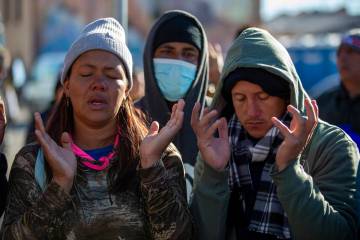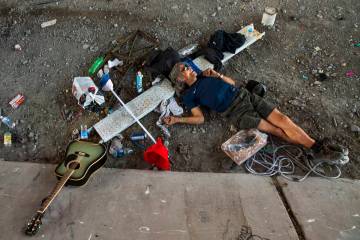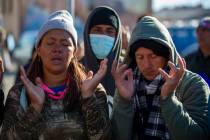COMMENTARY: We love dirty laundry
“It’s interesting when people die,” wrote Don Henley in the anti-media-sensationalism song “Dirty Laundry” in 1982. Not much has changed. There are more media outlets and platforms than ever, but tragedy still sells.
Mass shootings generate extensive media coverage, and understandably so. Murders committed in unusual or sensational circumstances get covered because true crime with a twist is interesting.
The problem with violent crime, especially if we rely primarily on one news source for our information, is that we tend to see the world through a straw.
According to FBI numbers, there were 25 percent more murders in 2020 than in the previous year. Through the first three months of this year, shootings are up 18 percent compared with last year. Among big cities with violence issues, Chicago leads the pack. In the first six months of the year, Chicago has seen 336 homicides — 33 percent more than in 2019. You’ve never heard about most of them, and you’ve heard less about incidents in which there were no fatalities.
A study in the journal of Preventive Medicine, released in October, looked at the way media cover shootings and found that news reports place a “disproportionate emphasis on fatal and multiple shootings, while also focusing on uncommon victims, such as women.” The study also pointed out that while mass shootings get most of the media coverage and, I would add, attention from politicians, shootings in the study that involved multiple victims made up only 22 percent of the total.
In big cities such as New York, Chicago, or Philadelphia, where I worked as a reporter for many years, you can’t cover every homicide.The Preventive Medicine study looked at 1,801 victims of intentional shootings and found that only about half were covered in the news. Of these victims, about 83 percent were Black, but just 49 percent made the news.
Here’s an example of the kind of story that makes news.
Recently, we took our daughter to Annapolis to begin life at the U.S. Naval Academy. The academy calls it “plebe week” as families descend to watch their children take an oath and dedicate themselves to the service of the country. It’s a grand, star-spangled ceremony.
Michelle Cummings came to Annapolis to see her son Trey’s Induction Day. Trey is a Navy football recruit. But on June 29, two days before the ceremony, Michelle was shot and killed as she sat on the porch of her hotel — a stray bullet, police said, fired by a fugitive who was aiming at two people inside a vehicle. The alleged shooter had been on home detention but cut off his ankle bracelet May 3.
The story made national news. Take away the Naval Academy angle and does the national media tell this family’s story? You still have a victim, a grieving family and a shooter who shouldn’t have been on the street. A tragedy by any definition.
These types of stories, and the statistics that represent the thousands of other victims who never made news, invariably lead to a debate about firearms, background checks and banning certain weapons. It’s always the lowest hanging fruit.
I’m far more interested in an honest discussion among the media and elected officials about why we’re killing each other and about shining a broader light on the problem, rather than focusing on specific incidents that advance political narratives. It seems to me the same media that see themselves as advocates for social justice might have a hard time explaining why the majority of shootings involving Black victims never get reported.
It takes a lot less work to report on symptoms rather than underlying causes. It’s much easier to nurture a climate in which cops are the enemy and to lead every discussion about violent crime by talking about guns rather than the criminals who use them. Focus on the unusual, the shocking, the politically expedient.
There’s a term for this — dirty laundry.
Rich Manieri is a Philadelphia-born journalist and author and a professor of journalism at Asbury University in Kentucky. You can reach him at manieri2@gmail.com.




























